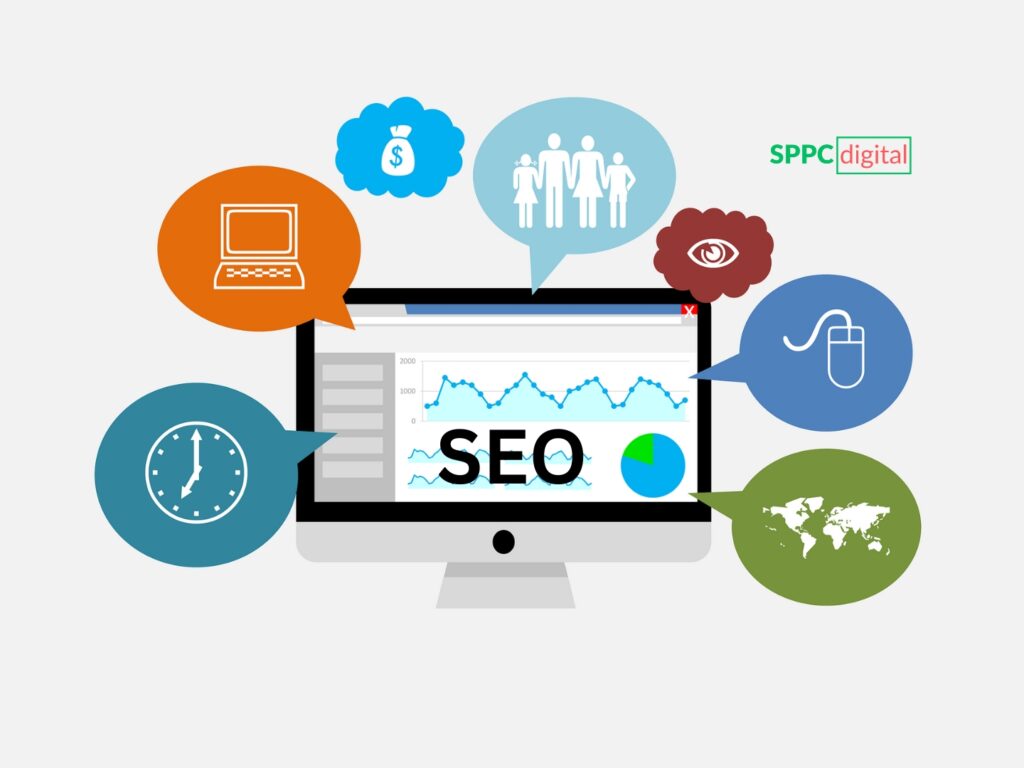Search Engine Optimization (SEO) is a digital marketing strategy designed to improve a website’s visibility on search engines. The outcome of SEO spans multiple dimensions, from driving organic traffic and boosting brand authority to fostering a better user experience. Here’s a detailed look at the key outcomes of SEO:
1. Increased Organic Traffic
The most immediate outcome of effective SEO is improved rankings on search engine results pages (SERPs), leading to increased organic traffic. By optimizing keywords, content, and site structure, businesses can attract users searching for relevant topics. Higher traffic levels are associated with better visibility and potential for conversion.
2. Enhanced Brand Credibility and Authority

SEO can help establish a brand as an authority in its niche. When a website consistently appears at the top of SERPs, users often associate it with reliability and trustworthiness. Techniques like backlinking, quality content creation, and earning high domain authority strengthen a brand’s image. This authority is crucial, as people are more likely to engage with brands they perceive as knowledgeable and trustworthy.
3. Better User Experience
Search engines prioritize user-friendly websites, meaning SEO practices improve the user experience (UX). Optimizations such as mobile responsiveness, fast page load speeds, and intuitive navigation not only enhance rankings but also make the website more accessible and enjoyable for users, which can lead to higher engagement and retention rates.
4. Higher Conversion Rates and ROI
SEO’s impact on conversion rates is two-fold: First, it drives highly targeted traffic by connecting users who are already interested in the content, product, or service being offered. Second, by enhancing UX, SEO can improve conversion pathways, such as easier navigation to product pages or CTAs. This targeted traffic and improved UX can lead to increased conversions, offering a high return on investment (ROI).
5. Sustainable Long-Term Results
Unlike paid advertising, which stops delivering once you end the campaign, SEO provides sustainable results. Once your content is ranked, it continues to drive traffic over time with minimal ongoing costs. Regular updates to SEO strategy help maintain and even improve these rankings, making SEO a cost-effective and long-lasting investment.
6. Increased Local Visibility
For businesses targeting a local audience, local SEO outcomes are particularly beneficial. By optimizing for local search terms and using tactics like Google My Business (GMB) listings, businesses can attract more customers in their geographic area. Local SEO not only increases visibility but also improves conversion rates since users searching for local services are often ready to make a purchase.
7. Improved Analytics and Data Insights

Implementing SEO requires tracking a variety of metrics, from keyword performance to user behavior on the site. This data can provide insights into what works and what doesn’t, helping businesses refine their strategies. Google Analytics and other SEO tools allow businesses to monitor and adjust content, keywords, and overall strategy based on performance, leading to more data-driven decisions.
8. Stronger Competitive Position
SEO can help a business achieve a competitive edge, especially in saturated markets. With a well-executed SEO strategy, a business can surpass competitors who rank lower on search results, capturing more market share. Even small businesses can compete with larger brands by strategically targeting niche keywords and optimizing for local search.
Key Takeaways
The outcome of SEO is multifaceted, impacting traffic, brand reputation, user experience, and long-term growth. By investing in SEO, businesses can see:
– Increased organic traffic and visibility
– Enhanced credibility and brand authority
– Improved user experience and engagement
– Higher conversion rates and ROI
– Sustainable, long-term results
SEO remains essential for digital marketing in 2024, offering substantial benefits that help businesses connect with audiences and thrive in competitive landscapes.
Here are five FAQs on the outcomes of SEO:
1. How does SEO increase website traffic?
– SEO improves rankings on search engines, making your site more visible to users searching for relevant content, and driving more organic traffic.
2. Can SEO boost brand credibility?
– Yes, ranking well on search engines builds trust, as users often see top-ranked sites as more credible and authoritative.
3. Does SEO improve user experience?
– Absolutely. SEO emphasizes site speed, mobile-friendliness, and usability, making the site easier to navigate and more enjoyable for users.
4. Is SEO a good investment for long-term results?
– Yes, unlike paid ads, SEO continues to drive traffic over time with consistent updates, making it cost-effective and sustainable.
5. How does local SEO benefit small businesses?
– Local SEO targets customers nearby, increasing foot traffic for brick-and-mortar locations and improving visibility for geographically targeted services.



